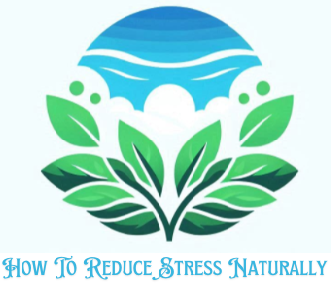Today we are going to explore the topic “The science behind stress and how to manage it”. It is great to know and understand how stress works, the science around it, and how to manage stress. Let’s go deeper into that!

What is stress?
Stress, huh? People talk about stress often. It is one of those things that get thrown around a lot, but what actually happens in our bodies when we are stressed? It’s all about survival.
This state of being goes way back to the days when dodging saber-toothed cats was a daily thing. Nowadays, the threats are more about emails and deadlines, but the biological response remains pretty much the same.
Stress kicks off when your brain perceives a threat. The amygdala, that little almond-shaped cluster in your brain, sends a distress signal to the hypothalamus. It is like the brain’s command center. The hypothalamus then talks to your adrenal glands, nestled right on top of your kidneys, and bam! They crank out adrenaline. Blood pressure spikes, heart rate zooms, and boom—you’re geared up for fight or flight. That’s stress there, working its ancient magic.
Chronic stress or not…
Not all stress is created equal. Some stress is short-lived and that is no big deal, really. It is when stress decides to unpack and stay a while that things get dicey.
Chronic stress has a knack for throwing off balance the hormones and neurotransmitters that usually keep us in check, and it doesn’t take long before the entire system starts to feel the strain.
Scientists have been peeking under the hood for years, trying to understand what stress does to us in the short term. It can affect your focus, your judgment, and even your mood.
It is like your body gets this sudden surge of superpower energy, but it doesn’t really know how to channel it. A whole lot of energy, and nowhere to direct it, that’s stress causing a ruckus on our systems.
The Impact of Stress on Physical and Mental Health
Now it is time talk to about stress’s impact on physical and mental health. How bad really is chronic stress? Let’s find out!
Stress isn’t just a mental thing; it takes a real toll on your body too. Ever notice a knot in your stomach before a big meeting or catch yourself tossing and turning at night just thinking about all that you have got to do? Yeah, that is stress making its unwelcome presence felt by your gut and sleep cycle.
Chronic stress messes with more than just your anxiety levels. Your immune system? It goes on the fritz, making you more susceptible to colds and other illnesses. Those pounding headaches? Probably not just dehydration. And let’s not forget its sneaky link to serious conditions like hypertension and heart disease.

How is mental health impacted?
Stress and mental health seem to hang out way too much. Prolonged exposure to stress can lead to anxiety disorders and even depression. It is like the stress switch gets stuck in the ‘on’ position, keeping your anxiety ramped up all the time.
There is a mountain of research backing this that connects long-term stress to these mental health concerns. It is not just ‘in your head’, it’s in science.
Stories
Take a peek at some real-world cases and studies, and you will see the heavy price tag of living with constant stress. People experiencing high-stress jobs or personal lives often report feeling run down and struggling with burnout. I believe it is not just individuals; society pays a hefty price too in healthcare and lost productivity. No one is winning here.
Recognizing these symptoms is the first step in lightening the load. Paying attention to your body’s signals can help manage stress before it spirals. Seek help when things feel too overwhelming; talking to a professional can provide new perspectives and coping strategies. Remember, taking care of your mental health isn’t a luxury, it’s a priority.
The Societal Factors Contributing to Stress Today
Life these days doesn’t seem to slow down, does it? It is never-ending. If it is not the clock beating down on us, it is the buzzing of notifications reminding us of things we haven’t done. Society today has a knack for keeping everyone on their toes, which adds to the stress pile a lot of people carry around.
Our never-off culture means we are plugged in around the clock. That smartphone in your pocket? It is like a mini-stressor, pinging away with demands and messages. It’s great to stay connected, but when do we unplug? Constant connectivity blurs the lines between work and personal life, leaving little room for any real downtime.

Groups
Different groups of people feel the heat differently. Millennials? They have grown up with technology in their hand, and yet they are grappling with unique stressors. Those juggling work and family face stress trying to balance both. Throw in financial worries, and it is no wonder stress levels are soaring across generations.
Even workplaces, with all their tech-savvy advances, add to the stress pot. The pressure to perform in a fast-paced environment is no joke. Long hours, and fierce competition—it is a recipe for chronic stress. When work-life balance becomes skewed, personal fulfillment can take a backseat to professional demands.
Finding that sweet spot means acknowledging these stressors and taking proactive steps to mitigate them. Whether it is through setting boundaries with technology or developing healthier work habits, change is possible. Remember, life doesn’t always have to be a sprint.
Effective Strategies to Manage and Reduce Stress
Now it comes to talking about stress reducing and managing stress in your life. Dealing with stress might seem like a tall order, but don’t worry, there are ways to tackle it head-on. It is all about finding what works best for you and adding it to your daily routine.
1. One well-trodden path is mindfulness. By focusing on the present, you give stress the slip, even if it is just for a few precious moments. Meditation and breathing exercises can help you find your calm center. They are like your personal timeout zone. Easy, free, and you can do them anywhere.
2. Getting physical is another powerful stress-buster. Regular exercise releases endorphins—those feel-good chemicals your brain loves. It could be a morning jog or a dance session in the living room, move that body and shake off the tension.
3. Surround yourself with support. Leaning on friends, family, or support groups can lighten the stress load. Don’t underestimate the power of a good chat. Sharing what’s on your mind can provide new perspectives and solutions you might not see on your own.
Stress management at work and more…
Many companies now offer stress management programs for those juggling professional stressors. It’s smart to check if yours does. They might provide resources and workshops designed to help you handle stress better in the workspace.

In the digital age, tech is not just a source of stress—it can be part of the solution. Apps focused on relaxation, sleep enhancement, and breathing exercises are just a download away. They can be helpful companions in your stress management toolkit. With these strategies, managing stress doesn’t have to be a solo mission.
Conclusion
We explored the science behind stress and how to manage stress. You know, the usual – how to manage stress. 🙂 Hopefully, some of us now understand more what is stress, what it does to our bodies, and how to deal with it.
As you know there are many ways to relax and reduce stress in your life. Many of these tips can be found on this website. You also can ask for professional help if you have real troubles with stress.
What do you think about tips for overcoming procrastination? Do you think that could also help you to deal with stress? And what do you think about this article? Do you have any advice or suggestions? Please let us know your thoughts and write in the comment section below.
If you are interested in meditation, CLICK HERE to explore.
I would like to hear from you, so please leave me a comment below to let me know if this article helped you.
If you want to know more about ways how you can manage stress, please subscribe to this blog, and you will receive a notification, when a new post is published.
If you think this article is useful, please share it.
Thank you! Have a nice day! Until later
Linda Mo
Founder and owner of How To Reduce Stress Naturally
